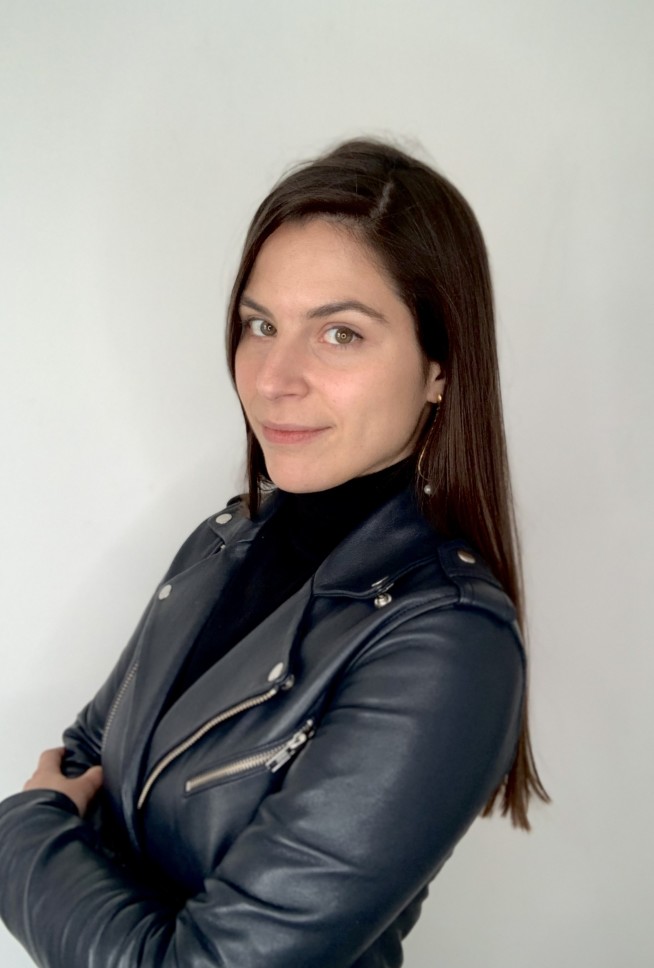Fernanda Dobal (MSc Global Innovation Design 2019) wanted a Master’s course which would blend her interest in both STEM and design. Fernanda found herself drawn to the Dyson School of Design Engineering and it was here that she went on to encounter an inspiring and interdisciplinary learning environment, and discovered the importance of research in business.
Today Fernanda is co-founder of Bia Care, a modern menopause clinic innovating on the service delivery of healthcare for women going through menopause in the UK.

Why did you choose Imperial as the place to follow your interest in STEM subjects?
I have always had an interest in STEM, but from the perspective of design. “How can we use design to make science more accessible?” was a question that had been with me throughout my career up until that point - and still is! I was drawn to Imperial for my Master’s because it struck me as a unique place where I could blend STEM and design to keep asking that question.
What did you learn during your time at Imperial, in class or out?
The most impactful thing I learnt during my time at Imperial was to be more comfortable with uncertainty. Innovation often doesn’t have easily predictable answers, and the topics we studied had lots of unknowns. The ability to be at ease with your ‘unknown-unknowns’ means you can push through and find something worthwhile, instead of switching to an easier path along the way.
Who did you find inspiring at Imperial and why?
I found my peers at Imperial incredibly inspiring. At the Dyson School of Design Engineering, I encountered people from all sorts of backgrounds – from the predictable backgrounds of engineering and product design, to some less predictable backgrounds such as business, biology, and fashion. This interdisciplinary environment fostered lots of space for inspiration.
What is your fondest memory of your time here?
My fondest memory was setting up an art installation in the College Main Entrance. My collaborator, Alison O’Reilly, and I were recipients of the Grantham Art Prize and we created an installation showing NASA climate data using LEDs. You never know who will walk by Imperial’s Main Entrance, and being there showing art inspired by science led to some very interesting conversations indeed.
Please tell us a bit about the work you’re doing now.
In 2020 I co-founded Bia Care. At Bia Care, we’re building a modern menopause clinic to help women connect with menopause experts and each other. We’re innovating on the service delivery of healthcare by creating a platform that can help people access both specialists and community in one place.
How has what you learnt at Imperial helped you in your career so far?
At Imperial I learnt the importance of evidence when creating something new, which has inspired me to put research at the centre of my work at Bia Care. This also means I’ve kept my ties with Imperial, and Bia Care has an ongoing partnership with researchers here.
What have been your career highlights and lowlights?
I think it’s no surprise that the start-up journey is a bit of a roller coaster! There may be a series of frustrating challenges when something isn’t working the way it should be, but suddenly you may get incredible feedback on how your product has helped improve someone’s life. Building something that didn’t exist before is certainly an ongoing highlight!
What are your plans for the future?
Bia Care is a young company with big dreams, beginning with making a difference in how healthcare is delivered to women going through menopause in the UK.
What advice would you give to girls who are thinking about studying STEM, particularly at Imperial?
The wonderful thing about Imperial’s culture is that people tend to be very open about collaborating across departments. So, I would say talk to people. It’s a mistake to think that STEM isn’t about the people, when it is people who will teach, inspire, and mentor you along the way.
Many of the jobs you’ll go on to do don’t even exist yet, and it’s only by speaking to people that you will have an inkling of what those might be - and what you’ll be interested in doing!
What’s the most difficult decision you’ve ever had to make?
Deciding what to study for my undergraduate degree was very difficult for me as I was interested in too many things! As a result, my career took a few non-obvious turns, but it meant that by the time I came to do my Master’s, studying at Imperial was one of the easiest decisions I ever made.
Fernanda’s advice to girls considering studying STEM:
“Talk to people. It’s a mistake to think that STEM isn’t about the people, when it is people who will teach, inspire, and mentor you along the way.”